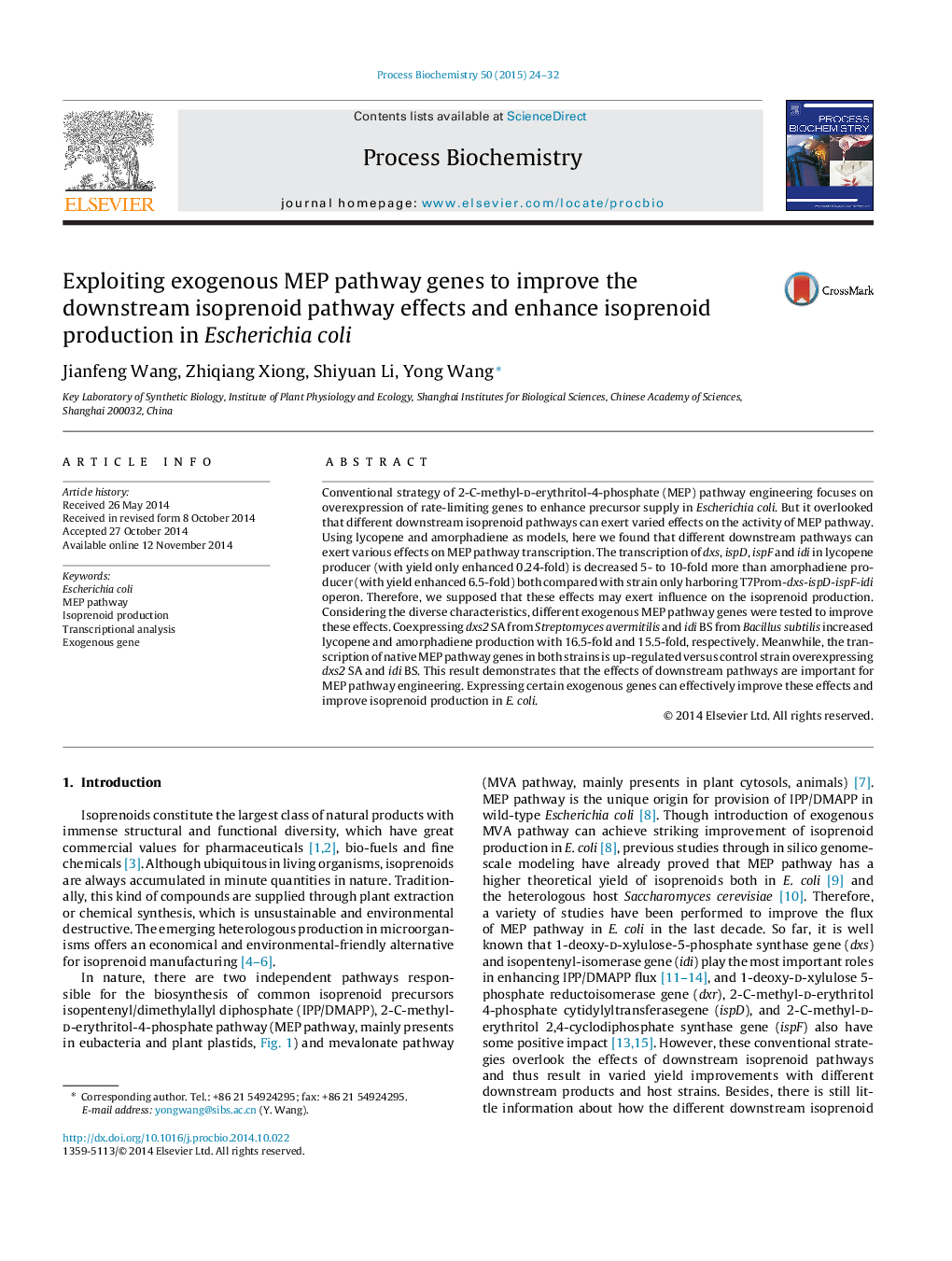| Article ID | Journal | Published Year | Pages | File Type |
|---|---|---|---|---|
| 34469 | Process Biochemistry | 2015 | 9 Pages |
•Different isoprenoid pathways exert varied effects on MEP pathway transcription.•Exogenous MEP pathway genes improve MEP pathway transcription in E. coli.•Exogenous MEP pathway genes can more significantly increase isoprenoid production.
Conventional strategy of 2-C-methyl-d-erythritol-4-phosphate (MEP) pathway engineering focuses on overexpression of rate-limiting genes to enhance precursor supply in Escherichia coli. But it overlooked that different downstream isoprenoid pathways can exert varied effects on the activity of MEP pathway. Using lycopene and amorphadiene as models, here we found that different downstream pathways can exert various effects on MEP pathway transcription. The transcription of dxs, ispD, ispF and idi in lycopene producer (with yield only enhanced 0.24-fold) is decreased 5- to 10-fold more than amorphadiene producer (with yield enhanced 6.5-fold) both compared with strain only harboring T7Prom-dxs-ispD-ispF-idi operon. Therefore, we supposed that these effects may exert influence on the isoprenoid production. Considering the diverse characteristics, different exogenous MEP pathway genes were tested to improve these effects. Coexpressing dxs2 SA from Streptomyces avermitilis and idi BS from Bacillus subtilis increased lycopene and amorphadiene production with 16.5-fold and 15.5-fold, respectively. Meanwhile, the transcription of native MEP pathway genes in both strains is up-regulated versus control strain overexpressing dxs2 SA and idi BS. This result demonstrates that the effects of downstream pathways are important for MEP pathway engineering. Expressing certain exogenous genes can effectively improve these effects and improve isoprenoid production in E. coli.
